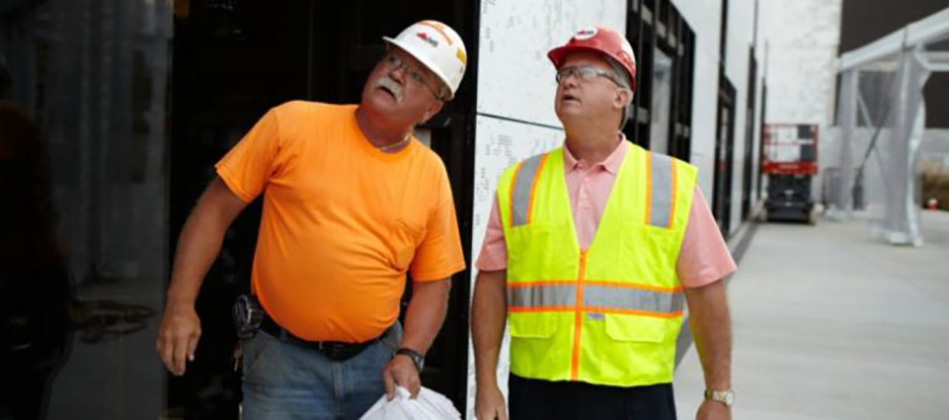The operational phase of a commercial building is significantly longer than the design and construction phase of a project. The operational life of a building is about 60 to 85 percent of the total lifecycle cost, whereas the design and construction is about five to ten percent.
As the operational phase of a building is longer and more cost intensive, facility managers should be involved and engaged early on in the design phase of commercial projects. Due to the innovations in technology and energy efficiency for commercial buildings, the structure becomes more intricate in its mechanical, lighting and control systems.
These sophisticated technologies can often cause some challenges to building operations and facility managers who maintain them after the installation phase. In addition to facility managers needing proper training on how to operate and maintain the high-performance building façade, challenges also occur when building operators, technicians and facility managers haven’t had the opportunity to learn about these technologies in order to sustain the building throughout its lifecycle.
Role of FMs in Pre-Con Phase
Involving facility managers early and often in the design-assist phase of construction is the key to extending the operational lifecycle of the commercial building. An ideal time to bring the facility manager into a project is during the pre-construction meetings. Pre-construction meetings provide the opportunity to begin communicating and problem solving with the construction team, owner, architect, and other parties who address both design and construction concerns. By determining possible obstacles early on, the necessary changes can be implemented on paper before the start of the construction phase.
Since facility managers are involved in the daily operations and maintenance of buildings, they have acquired the knowledge to contribute at the design stage that can inform the construction team of the building’s use and needs. To complement the performance requirements of the building, the building enclosure contractor will have solutions regarding design considerations, materials used, and even building methods, that will ensure cost-effective building operation and maintenance.
Involving the facility manager during the pre-construction meetings is a systematic process that includes design review, installation verification, proper system start-ups, functional performance tests, operations and maintenance training and complete documentation of the installed systems.
FM Responsibilities After Construction
It is important for facility managers to understand how to maintain and operate the building façade after construction once the building enclosure contractor’s work is complete. Additionally, the building enclosure contractor should help facility managers accurately plan for the maintenance and preservation of the building enclosure throughout the facility’s lifecycle. Being a part of the-preconstruction meetings provides facility managers with insight on the development of programs for ongoing maintenance and operations.
Throughout the pre-construction meetings, the facility manager has the opportunity to add to the sustainability agenda by contributing to the appropriate design and equipment selection from the view of maintainability, cost of operations and safety.
The facility manager should conduct site visits during every construction phase and have substantial involvement during both the punch list and transition phases, so they can identify issues early on before they become an ongoing problem later. Moreover, facility managers should review warranties and service contracts and be immediately involved in the start-up to ensure everything is running correctly.
Building Performance Lifecycle
Buildings can last a very long time, and it is better to design for efficiency and cost-effective operations and maintenance from the beginning. By ensuring that all stakeholders assess the environmental, operation and maintenance issues at the project design phase is vital.
When planning for a new building or a renovation of an existing building, it is important to look for a combination of a stable and healthy structure, a functional building that meets the needs of the people using it, and an aesthetically pleasing space. A successful construction project must include the input and expertise of clients, architects, interior designers, engineers and construction professionals. The missing expert is the facility manager. Including the facility manager early on will result in reduced operational and maintenance costs and the more efficient use of a building over time.

